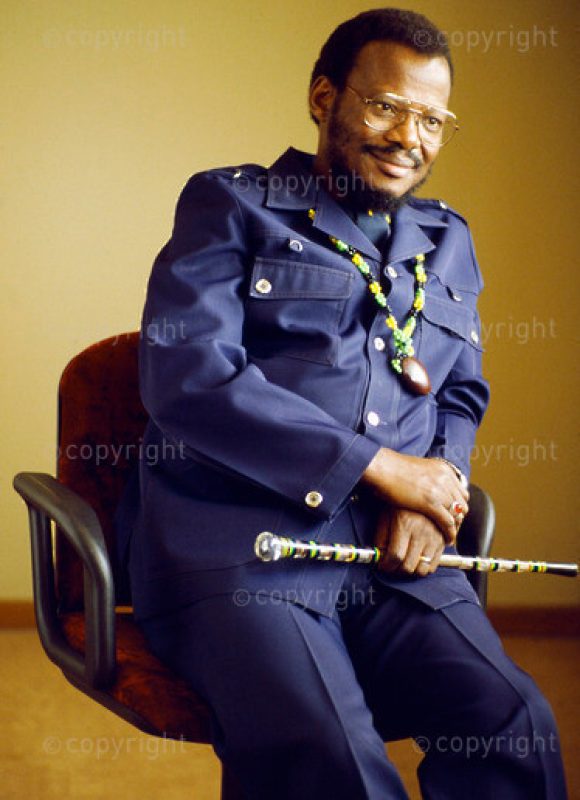PIONEER
Prince Mangosuthu Buthelezi

Politician | Inkatha Freedom Party founder | Constitution drafter
Born: 27 August 1928
“From the outset the IFP sought a federal system for South Africa, with autonomy, in the best tradition of European democracies … Simply put, the IFP sought a system in which people would have the authority to deal with their own affairs without the state breathing down their necks.”
Who is
Prince Mangosuthu Buthelezi?
Politician, founder of the Inkatha Freedom Party (IFP) and leader of the Buthelezi clan.
Professions
and Roles
Member of Parliament, Prime Minister to the Zulu Monarch and President of the IFP.
Best Known For
Founder of the IFP and represented it in the negotiations for a democratic South Africa.
Life highlights
- Buthelezi joined the ANC Youth League (ANCYL) at the University of Fort Hare. He took part in the student protests of 1950 against the visit of Governor General G Brand Van Zyl, and as a result was expelled from the University.
- On the advice of Inkosi Albert Luthuli, he responded to the call of the Buthelezi Clan and returned to Mahlabathini in 1953 to take up his hereditary position as Inkosi.
- He was later elected as Chief Executive Officer of the Zulu Territorial Authority in 1970 and appointed as Chief Executive Councillor to the KwaZulu Legislative Assembly in 1972. He served as Chief Minister of KwaZulu from 1976 until 1994.
- Buthelezi founded the Inkatha Yenkululeko Yesizwe in 1975 after the banning of the ANC. He rejected the nominal “independence” for KwaZulu and derailed the grand scheme of apartheid to balkanise South Africa.
- Buthelezi was appointed as the national Minister of Home Affairs in 1994.
IN THEIR OWN WORDS
“From the outset the IFP sought a federal system for South Africa, with autonomy, in the best tradition of European democracies … Simply put, the IFP sought a system in which people would have the authority to deal with their own affairs without the state breathing down their necks.”
“In the end, the IFP won only an imitation of the federal system, for we secured provinces. We also secured legislative powers for provinces, allowing them to adopt legislation in a number of areas, all enshrined in the Constitution.”
“South Africa’s cultural diversity posed a challenge to the incoming government, who somehow equated nation-building with a project of homogenising our people. I rejected this idea, understanding that South Africa could not become a melting pot of cultures, languages and beliefs, but needed to be more like a salad bowl, in which the lettuce remains lettuce, the tomato remains tomato and so forth, while coming together to form a harmonious whole. Thus the IFP supported the concept of Cultural Councils which would enable a group of people to petition the provincial government to establish a council for their group …”
“In all that I have done, I have sought the best interests of my country, so that we might attain a unified, equal and just society in which both individuals and groups enjoy the gains of freedom.”
– Mangosuthu Buthelezi
IN THE WORDS OF OTHERS
“The IFP, under the close directive of its leader, Prince Mangosuthu Buthelezi, was ably represented at the negotiating table by, among others, Mr Ben Skosana, Mr Walter Felgate, Dr Mario Oriani-Ambrosini and me. We tabled proposals for a full Bill of Rights, the creation of a Constitutional Court, the control of the executive by independent organs of state, the recognition of indigenous and customary law, a federal state with provinces, and many other aspects of a modern Constitution.”
– Mangaqa Albert Mncwango, former deputy national chairperson of the IFP
Parliament of the Republic of South Africa (2018) Theme Committee Book Series 1-6
